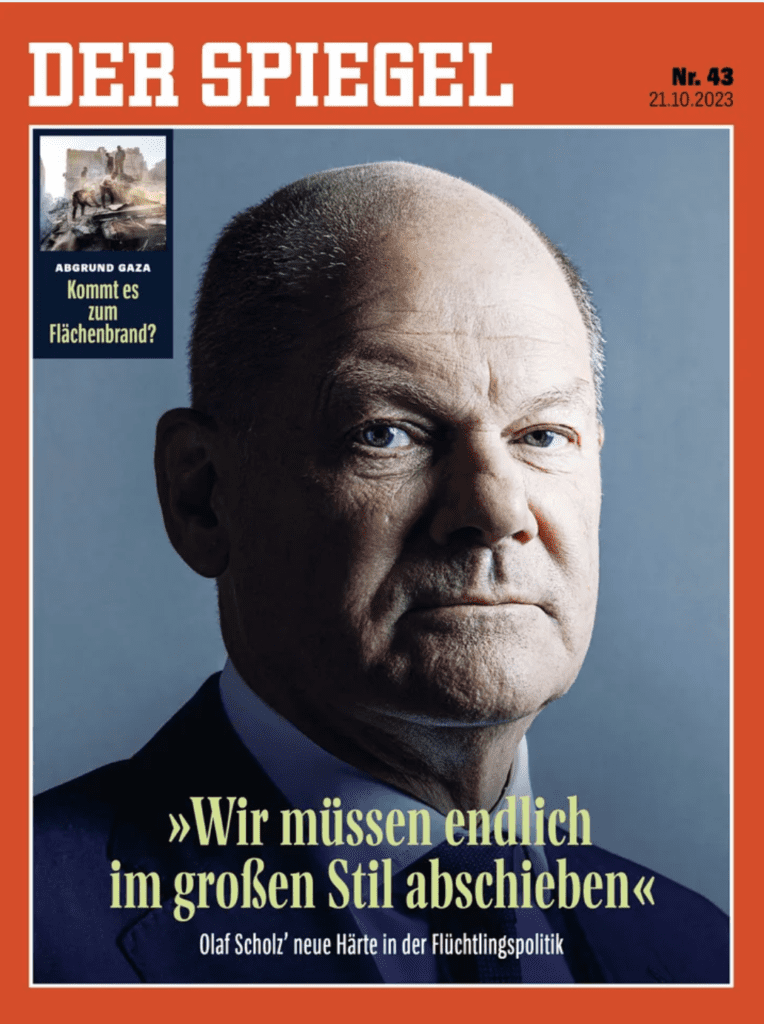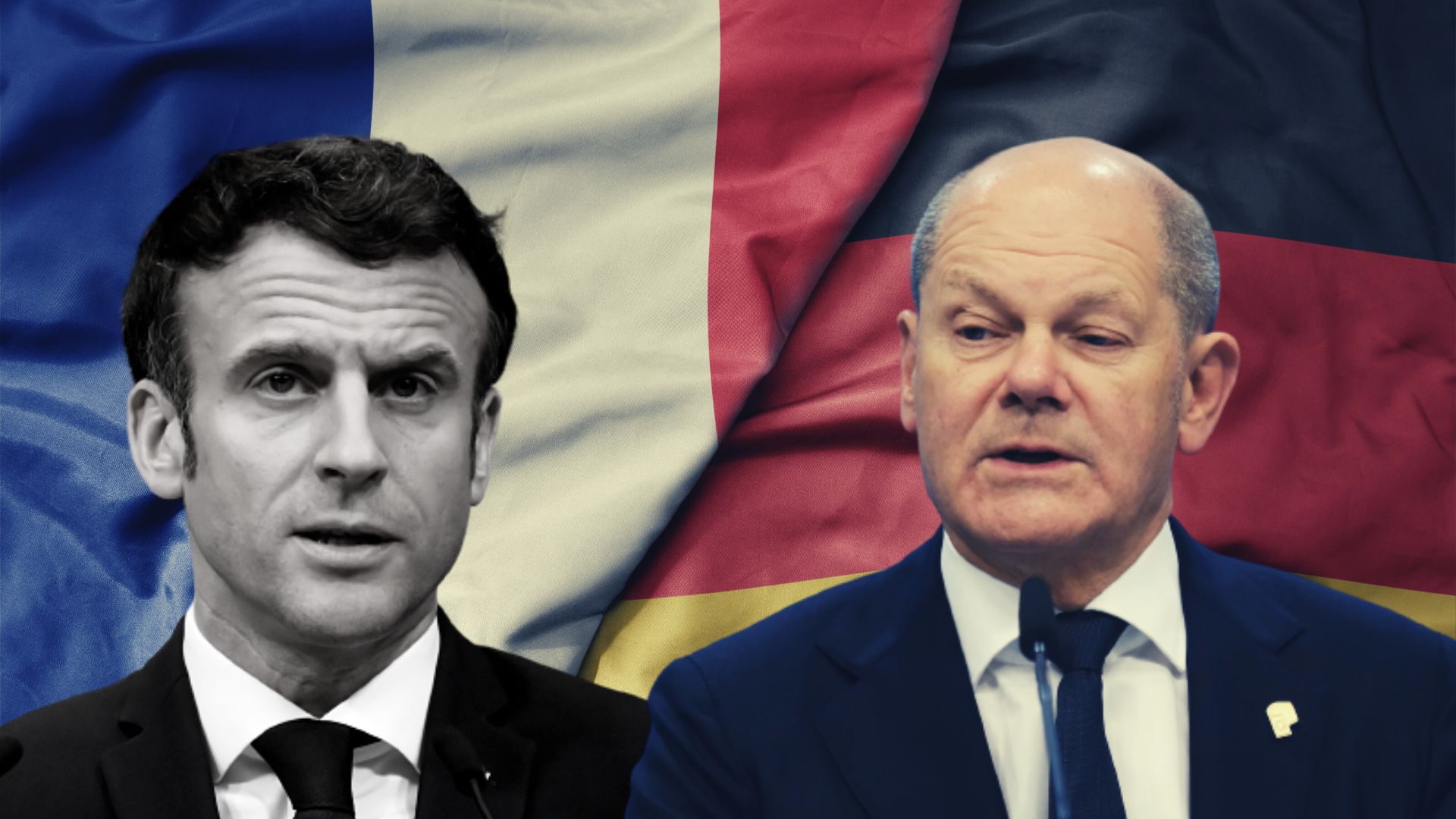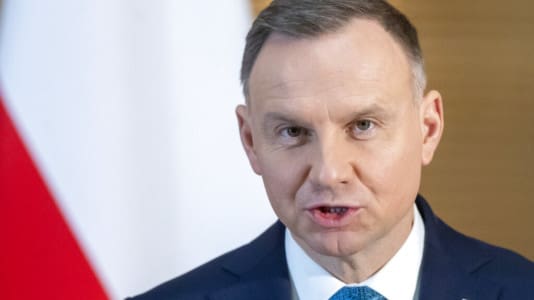With backlash growing against mass immigration across Germany, the country’s media and political establishment is waging a tried-and-tested campaign to steer voters away from the Alternative for Germany (AfD) and ensure they keep power.
These same journalists and politicians are, however, not having second thoughts about their goal of massively increasing immigration to Germany and creating a post-European, multicultural regime in the heart of Europe.
France shows the way for the German political class, as it has dealt with a far more difficult and larger immigration population for far longer — all against the opposition of the French people. Remix News has long reported how polls going back decades have shown the French overwhelmingly opposed to mass immigration, even in far greater numbers than the Germans. In fact, the French are downright right-wing in their views on migrants, to the point that even a majority of those voting for left-wing parties are outright hostile to more newcomers. Olaf Scholz, who is an ally of Macron, has obviously taken notes.
Like Macron, Scholz is aided by a media establishment firmly in his camp. The left-liberal government realizes that pressure is growing on immigration to the point that some “tough talk” is needed for the time being, even if the end goal is to increase immigration numbers namely through legal immigration.
In order to understand how Scholz is using the Macron playbook, it is first worth looking at his latest “bombshell” interview in Der Spiegel. The normally pro-migration publication splashed Olaf Scholz on its cover recently with the headline stating: “We must finally deport on a large scale.” Der Spiegel is not painting Scholz in a negative light. In fact, it is there to help him sell his message.
The article itself, which can also be read in English here, features glossy photos of Scholz looking ready to tackle the immigration crisis single-handedly. It is in short an advertisement posing as journalism — one that will prominently feature Scholz at supermarket checkout counters and in doctors’ waiting rooms where many come across the magazine. Most will not even bother reading the contents of the article, but that is just as well for Scholz and his government.

During the interview, Scholz, like Macron often does, walks a fine line, saying immigration must be controlled to save Germany’s social system:
“Anyone who wants unlimited immigration has to be honest and say that we would then not be able to maintain the welfare state we have today. So that doesn’t make us inhumane. Because we are responsible for ensuring that our community functions. This also includes a certain level of hardness. You have to have the strength to tell people that, unfortunately, they can’t stay here.”
To understand Scholz’s pivot to talking tough on immigration, let us take a look at what Macron has been saying for years now — and how Scholz has often imitated him. As Macron demonstrates, he has an incredible ability to pander to all audiences, even in the same interview, while offering no meaningful reform or action on the issue of immigration.
Deportations
All the way back in 2019, Emmanuel Macron said in an interview with Valeurs Actuelles that he wanted “100 percent” of all migrants to be deported who should not be in France. The country’s deportation rate has never topped 15 percent, and for certain problematic groups, such as Algerians, the deportation rate is an abysmal 0.2 percent.
Scholz, just like Macron, has no real intention of deporting anyone in serious numbers. The country’s police union head, Rainer Wendt, has thrown cold water on Scholz’s “tough” immigration announcement in Der Speigel, telling FOCUS: ‘“For around 50,000 people who are legally obliged to leave the country, it would take more than 80 years to deport them to their homeland, during which millions would have arrived here.”
In fact, the German government’s bill would only lead to 600 more cases of deportations. “People are really tired of being led by the nose like that, the traffic light (coalition) really shouldn’t be surprised that their poll numbers are plummeting,” Wendt further said. “Every child who has mastered basic arithmetic recognizes the government’s deception, especially Chancellor Scholz, who is trying to sell these plans as a change in asylum with pithy words.”
Immigration and Culture
In 2020, Macron said that France’s Muslims were in danger of forming a “counter-society.” He said that Islamic “separatism” was a threat to France. He also stated: “Islam is a religion that is in crisis all over the world today, we are not just seeing this in our country.” Macron, in the same speech, then said those who criticize the Muslim community are “extremists.”
Also in 2020, following the beheading of history teacher Samuel Paty by a young Muslim student, Macron announced a “crackdown” on Islam, which included efforts to ban foreign money for imams, efforts to teach Arabic in schools, and the allocation of €10 million to promote Islamic culture.
Just this month, in response to pro-Palestinian protests against Israel, Macron stated that “the state will be merciless with those who embody hatred,” while announcing that his government would crack down on extremist foreigners with deportation. Already in 2020, there were 8,132 people in the FSPRT database for those radicalized as potential terrorists, of which 4,111 were foreigners and another 851 were illegal immigrants. The French Ministry of the Interior announced at that time the “terrorist risk from those of Sunni origin remains the main threat facing our country.”
Meanwhile, Scholz, in response to pro-Palestinian demonstrations, said during the Der Spiegel interview, “Such acts are reprehensible. And yes, we have committed ourselves to ‘Never Again.’ That is why we must decisively stand up to all those who chant anti-Semitic slogans, who burn the Israeli flag, who unashamedly celebrate the death of those killed in the Hamas terror attack. They are all crimes that must be punished.”
Border Security
In 2020, Macron said during a visit to France’s border with Spain that “I am in favor of a deep overhaul of Schengen to re-think its organization and to strengthen our common border security with a proper border force.”
The following year, in 2021, Macron’s government banned Generation Identity, a youth group focused on preserving French identity. The group was targeted for performing its “Defend Europe” actions both in the Alps and at the Spanish border showcasing how easy it is for illegal migrants to cross into French territory.
Like Macron, Scholz has often called for tighter border security at the EU’s external borders. It has been empty rhetoric from both leaders. Instead, both have shifted toward pushing their migrants into countries like Hungary and Poland. Scholz, in his Der Spiegel interview, states: “And we have agreed on a new solidarity mechanism in the EU: Refugees are to be registered in their first country of entry instead of merely being waved through to Germany. In return, they will be fairly distributed throughout Europe. The European Parliament will hopefully approve this mechanism in the coming months.”
Taking both sides of the immigration issue
In 2022, Macron said that “France has always been a land of immigration. It is part of our DNA, it is the strength of our country, and we have always needed it for our economy.”
That same year, Macron said that migration from Africa and the Middle East “can make France greater.”
In August of this year, Macron said that France needs to drastically reduce immigration. He said: “Are we flooded with immigration? No. You cannot say that. But the current situation is not sustainable, and we need to reduce immigration significantly, starting with illegal immigration. We have a duty to deliver.” He then added Europe needs to better protect its external borders.
Scholz is taking a very similar line here, both celebrating immigration in his Der Spiegel interview, while also calling the need for action against irregular migration. Scholz ultimately outlines that “we are also going to need more immigration. With the modernization of our immigration laws, with the Skilled Immigration Act, we have established the conditions for the talented minds and skilled workers we need to come to us from abroad. We don’t want them to just work here, but to live here and integrate – to the degree that they urgently want to become German citizens. From my perspective, it can even be linked with a bit of emotion, as is the case in the United States.”
Der Spiegel does challenge Scholz at times and questions his motives in one part of the interview.
DER SPIEGEL: You haven’t spoken this way as German chancellor. You have left Interior Minister Nancy Faeser to deal with the situation on her own. Our impression is that the results achieved by the Alternative for Germany party in state elections in Bavaria and Hesse have convinced you to change your tune.
Scholz: Your impression is wrong. I am opposed to tactical politics. It must always be about the matter at hand and about finding concrete solutions to specific problems.
DER SPIEGEL: We have a hard time believing that.
Scholz: And yet it’s the truth. Much of what I just described has long since been discussed by the government and is on the way to becoming reality.
If a lot of these statements from both leaders seem contradictory or confusing, they are designed that way. Macron, especially, is a true professional when it comes to hoodwinking and gaslighting an entire country on the issue of immigration — even if he is only following to a large degree in his predecessor’s footprints.
The French leader typically reacts with diversionary tough immigration rhetoric after terror attacks, riots, and high-profile murders involving migrants, such as the rape and murder of 12-year-old Lola by an Algerian migrant with deportation orders. In fact, after Lola’s death, Macron said during an interview on France 2 television, “I will never make an existential link between immigration and insecurity.” In the same interview, however, he stated that foreigners are responsible for half of all the crime in Paris, saying: “Yes, when we look at delinquency in Paris, we can see that half of the delinquent acts come from foreigners in an irregular situation or awaiting asylum approval.”
Macron has no problem contradicting himself directly on the issue of migration in the same interview.
Scholz is using a similar strategy because, simply put, it works. As long as you have a mostly friendly media market in your corner, these journalists can sell whatever angle to whatever segment of the public they need to at any given time, and the more contradictions, the more they can package and tailor those contradictions to the right audience. Macron is, after all, still in power, and he has arguably had to operate in far more treacherous conditions than Scholz is facing on the issue of immigration.
The stakes for Scholz and his left-liberal government are high, and with the Alternative for Germany (AfD) hovering near a record high in the polls, that party could start to win power at the state level in next year’s elections in the east of the country. At the same time, the current left-liberal government has its lowest approval rating ever; the majority of Germans say it should be removed from power and early elections should be held. The situation is existential for not only Germany’s rulers, but also those running the show in Brussels.
Scholz is ultimately trying to pivot to mass immigration from India and Asia, much like the Canadian model. The end result is no less a demographic replacement of the Germans, and more broadly other peoples across Europe, than the old model of irregular migration from the Middle East and Africa. These new Asian groups will arrive with grievances against White Europeans, and if they do not, the current left-wing education systems will indoctrinate them into these views. Future Sarah Jeongs will arrive in Germany with a grudge against Whites, and the future Humza Yousafs will complain that Germany’s political class is too White, that Whites have too much power.






